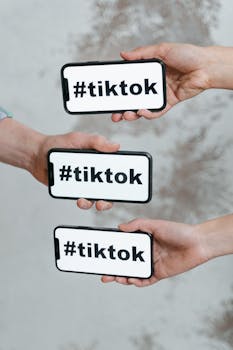Entertainment marketing plays a vital role in the promotion and success of movies, television shows, music, and various forms of entertainment. It encapsulates diverse strategies and techniques aimed at creating interest and engagement among target audiences.
In an era dominated by constant media consumption, understanding entertainment marketing becomes crucial for both professionals and enthusiasts. With many options available, standing out requires innovative and effective marketing practices.
This article will explore the core concepts, strategies, and future trends in entertainment marketing, providing insights for those looking to succeed in this exciting field.
What is Entertainment Marketing?
Entertainment marketing refers to the promotional activities aimed at generating interest in entertainment products. It includes films, television shows, concerts, and various performance arts.
This form of marketing encompasses creating buzz and attracting audiences through targeted campaigns. Marketers often use social media, public relations, and events to reach consumers effectively.
Additionally, it involves collaboration with influencers and celebrities to influence potential viewers and listeners. Such partnerships create authenticity and engage the audience on a personal level.
Furthermore, entertainment marketing relies heavily on comprehensive research to understand consumer demographics. Understanding these factors allows brands to tailor their message effectively.
Ultimately, this marketing approach aims to build a connection between the content and the audience, ensuring engagement and ticket or download purchases.
The Role of Social Media in Entertainment Marketing
Social media has transformed the landscape of entertainment marketing, allowing content creators to engage directly with their audience. Platforms like Instagram, Twitter, and TikTok have become key promotional tools.
By showcasing behind-the-scenes content and exclusive previews, brands can build anticipation and hype around upcoming releases. These glimpses often stir excitement among fans.
Furthermore, social platforms facilitate interactive campaigns, such as contests and live Q&A sessions with creators. Such interactions personalize the experience, enhancing audience loyalty.
Moreover, user-generated content plays a vital role in amplifying a brand’s message. When fans share their experiences, it generates authentic buzz around the entertainment product.
Overall, incorporating social media into entertainment marketing strategies has proven essential. Engaging with audiences on these platforms enhances reach and strengthens the connection between creators and fans.
The Importance of Storytelling in Marketing
Storytelling is a fundamental component of effective entertainment marketing. A riveting narrative captivates audiences and evokes their emotions, creating a strong connection.
Marketers often craft compelling stories around the entertainment products to resonate with audiences. These narratives can highlight themes, characters, or even the making of the product.
Additionally, storytelling provides an opportunity to showcase the unique aspects of a film, show, or album. This strategy allows potential viewers or listeners to envision their experience.
By effectively using storytelling techniques, brands can imprint memorable messages in the audience’s mind. This lasting impression can lead to increased engagement and loyalty.
In summary, successful entertainment marketing relies heavily on storytelling. It enhances emotional connections and fosters a stronger appeal to potential audiences.
Utilizing Influencer Marketing
Influencer marketing has become a dominant strategy in entertainment marketing. Collaborations with influencers help brands amplify their messages through established followings.
Choosing the right influencers is crucial; their audience should align with the target demographic. Authentic endorsements resonate more strongly with followers, resulting in increased engagement.
Additionally, influencers can introduce entertainment products to new audiences. By leveraging their platform, brands can reach potential fans who may not have previously engaged with the content.
Moreover, influencers can humanize the marketing process, fostering genuine relationships. Their perspectives can add depth to promotional campaigns, making them more relatable.
In summary, influencer marketing is a powerful tool in the entertainment sector. It enhances reach, drives engagement, and helps create authentic connections with audiences.
Event Marketing in the Entertainment Industry
Events play a crucial role in entertainment marketing strategies. Launch parties, premieres, and fan meet-and-greet events create buzz around new releases.
These events offer direct interaction between creators and audiences, creating memorable experiences. Fans appreciate the chance to engage with their favorite artists or actors personally.
Additionally, well-executed events generate media coverage and online buzz. These aspects can draw in additional audiences who may not have known about the entertainment product.
Furthermore, event marketing can also leverage partnerships with sponsors, enhancing resources and visibility. This collaboration expands outreach efforts and provides more value to attendees.
In conclusion, event marketing is indispensable in the entertainment industry. Engaging fans through live events fosters connections and enhances overall brand visibility.
Content Marketing Strategies
Content marketing involves creating valuable and relevant content to attract and engage audience segments. In entertainment marketing, this could mean informative blogs, videos, or podcasts.
Engaging content helps build a community around entertainment products. Brands can share insights, behind-the-scenes stories, and interviews to deepen audience interest.
Moreover, content marketing can enhance search engine visibility. By optimizing content with relevant keywords, companies can attract organic traffic to their platforms.
Additionally, focusing on storytelling within content marketing can create emotional connections. This tactic reinforces a brand’s identity, solidifying audience loyalty over time.
To sum up, content marketing strategies are essential in entertainment marketing. They help maintain audience engagement and promote overall brand awareness.
The Future of Entertainment Marketing
The future of entertainment marketing is vibrant, with technological advancements reshaping strategies. Emerging technologies like virtual reality (VR) and augmented reality (AR) offer groundbreaking promotional opportunities.
As audiences become more tech-savvy, integrating immersive experiences will likely become standard. These innovations enhance engagement and provide memorable experiences for consumers.
Moreover, artificial intelligence (AI) is transforming data analysis in marketing. AI can predict trends and consumer behavior, allowing for tailored marketing strategies.
Furthermore, sustainability and social responsibility are becoming significant considerations. Audiences increasingly favor brands that demonstrate ethical practices and environmental consciousness.
In conclusion, the future of entertainment marketing promises innovation and creativity. By adapting to new technologies and consumer expectations, brands can thrive in this competitive industry.
Conclusion
Understanding entertainment marketing is essential for anyone looking to succeed in this dynamic field. By employing diverse strategies, brands can effectively engage with their audiences.
The integration of social media, influencer collaborations, storytelling, and immersive technology shapes the future of marketing in the entertainment world. Each element plays a critical role in creating compelling marketing campaigns.
As the industry evolves, staying adaptable and informed about emerging trends will empower marketers. Ultimately, successfully connecting with audiences ensures the success and longevity of entertainment products.
From content creation to event marketing, the possibilities are vast. Embracing innovative approaches will pave the way for greater audience engagement and brand growth.
In summary, mastering entertainment marketing requires knowledge, creativity, and strategic planning. As the landscape continues to change, those who navigate these challenges will set themselves apart in the industry.


